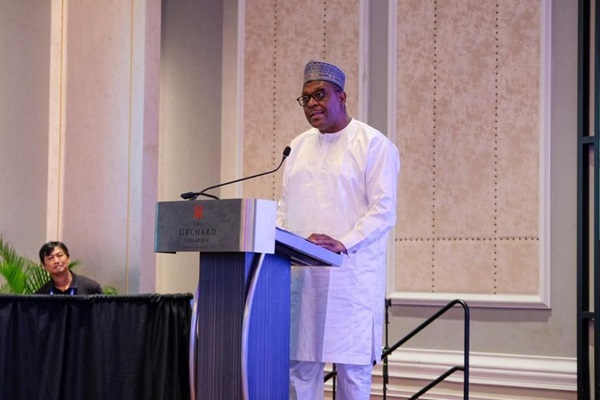
The Federal Government (FG) has emphasised the need for stronger collaboration among all levels of government to ensure that local government financial autonomy translates into improved primary healthcare (PHC) services for Nigerians.
The Minister of Health and Social Welfare, Prof. Muhammad Pate made this call on Thursday in Abuja during the National Stakeholder Engagement on Accelerating Improvement in Primary Health Care in Nigeria.
Science Nigeria reports that the event was organised by the National Primary Health Care Development Agency (NPHCDA).
Pate stressed that while local government financial autonomy is a significant step, it must be backed by effective coordination between federal, state and local governments to achieve tangible results in healthcare service delivery.
“The health system is structured to function through intergovernmental cooperation, and this approach must be strengthened.
“If we fail to align policies with community needs while ensuring national and state priorities are met, we risk eroding healthcare standards and creating inefficiencies,” he said.
He noted that discussions on the implications of financial autonomy for PHCs had been ongoing for months, with input from civil society organizations, local government representatives and federal and state officials.
Despite the potential benefits, Pate cautioned that funding constraints remain a major challenge in Nigeria’s healthcare system.
“With healthcare spending currently below $14 per capita, and local government contributions estimated at just $3 to $4 per capita, financial autonomy alone will not solve our challenges.
“It requires strategic resource allocation, where local governments optimize what they have, states provide additional support, and the federal government continues to offer technical and policy guidance,” he highlighted.
The minister emphasised that Nigeria’s 2014 National Health Act provides a legal framework for collaboration between federal, state, and local governments.
He urged stakeholders to leverage this law to prevent fragmented efforts and administrative bottlenecks that could hinder service delivery.
Pate also warned against excessive focus on bureaucratic processes at the expense of actual healthcare improvements.
“We must not get caught up in meetings and bureaucratic processes at the expense of real healthcare needs.
“Our focus must remain on delivering quality healthcare that benefits Nigerians,” he said.
The minister called on governors, local government leaders, civil society, and development partners to collaborate in ensuring that financial autonomy leads to greater efficiency, accountability, and improved health outcomes.
“This engagement is not just about policies; it is about people’s lives,” he emphasised.
As Nigeria moves forward with implementing local government financial autonomy in primary healthcare, the Federal Government has pledged continued support while urging local governments to strategically allocate resources to maximise impact.
The event concluded with a renewed commitment from stakeholders to work collaboratively in strengthening Nigeria’s PHC system and ensuring that local government autonomy leads to meaningful health improvements for citizens.

